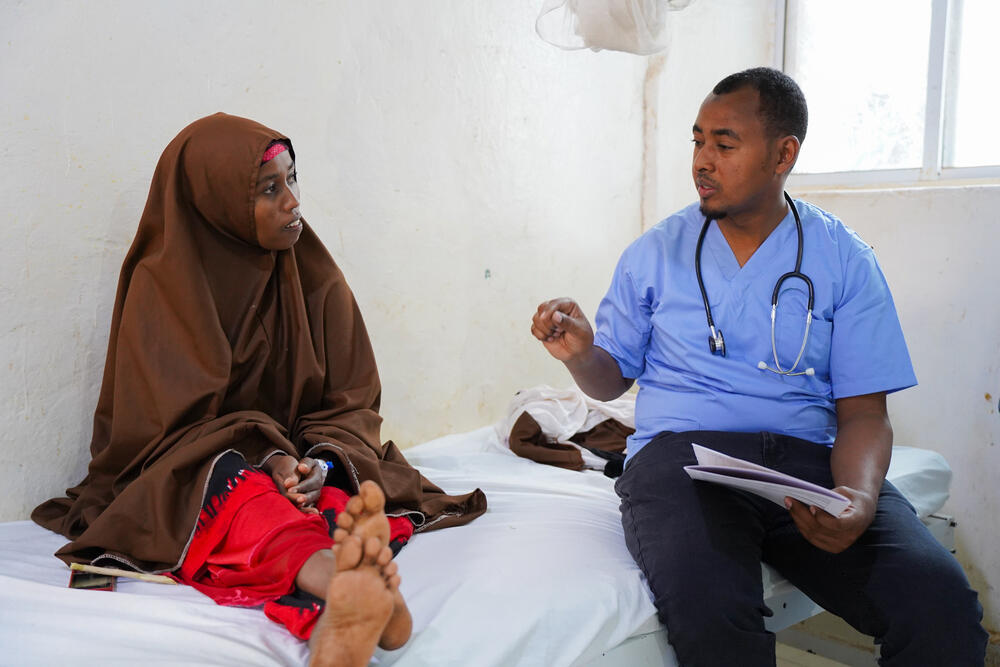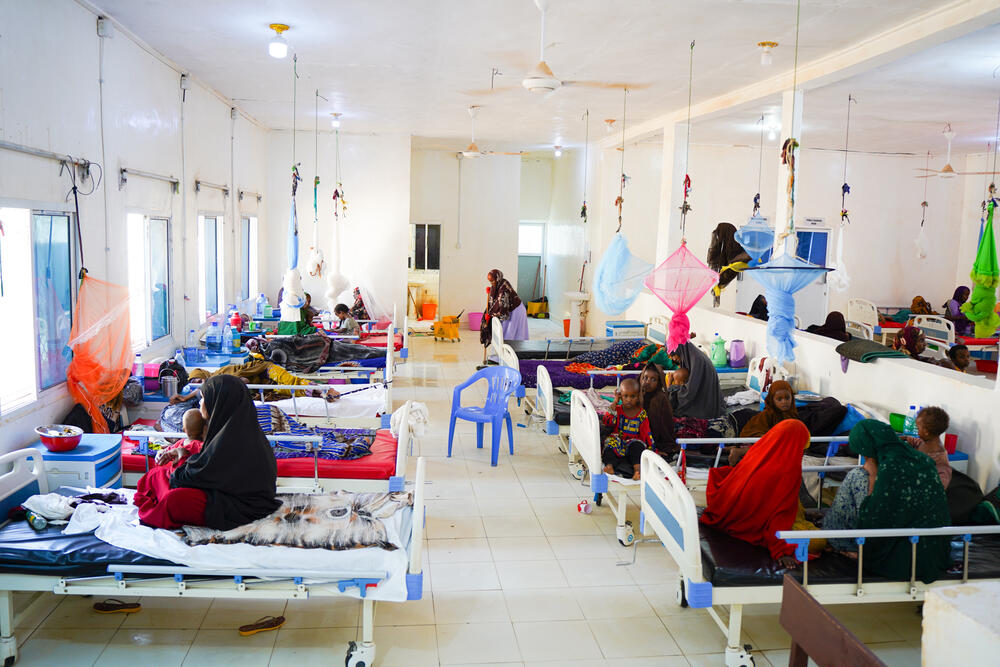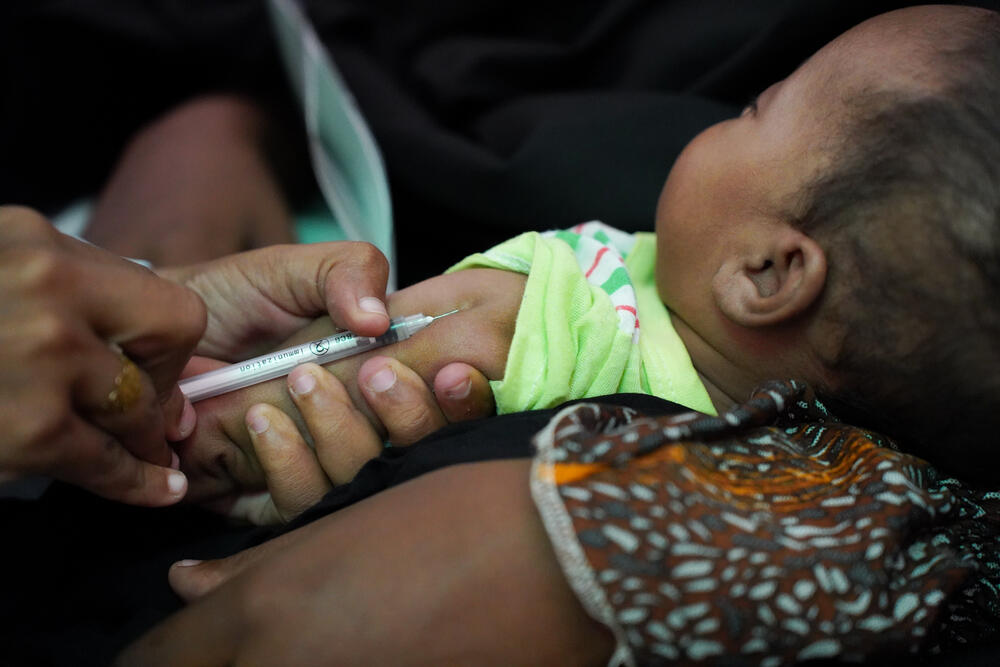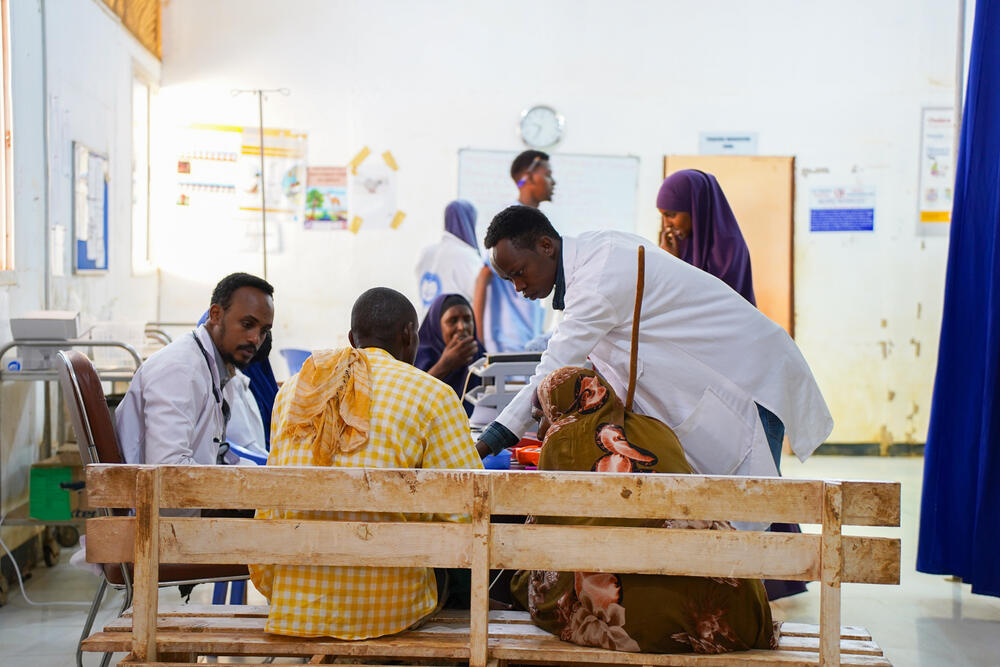Somalia: Deadly challenges of accessing healthcare for women and children
Many women and children in Baidoa, Somalia, have to undertake journeys of hundreds of miles to reach medical facilities. To make matters worse, insecurity and violence often lead to delays that exacerbate health conditions and tragically, sometimes even lead to death.
“Seven months ago, my wife gave birth to twin boys. She experienced excessive bleeding during delivery, but I had no money to take her to the hospital. Our village lacks a free health facility,” says Kalimow Mohamed Nur, a father whose twins are under treatment at the Bay Regional Hospital supported by Médecins Sans Frontières / Doctors Without Borders (MSF) in Baidoa, Somalia.
“While caring for her at home, our two boys also fell ill. I had to take a loan of about £100 and travelled 186 miles from my village to Baidoa to seek free care,” he said.
Kalimow's wife survived the bleeding and after seven months he managed to bring his sons for treatment.
However, there are hundreds of women and children who still cannot seek medical care in the Southwest state of Somalia. The persistent conflict in the region means a precarious situation for anyone in need of critical healthcare.
Those who can afford the journey risk getting caught in violence and paying large amounts of money for transport to reach the few fully functioning health facilities.
Barriers to accessing medical care
Many people in the Bay region of Baidoa live in poverty, which makes it difficult for them to afford healthcare services and the transport to get there. Transportation can cost up to £235, forcing many to delay or forgo essential medical care, leading to high rates of illness and death from preventable diseases.
People in the region have been facing significant health and humanitarian challenges due to prolonged conflict, chronic instability, and climate events including severe droughts and flash floods. Along with the strained healthcare system, women and children are left particularly vulnerable.
Cultural norms and traditional practices also play a large role in healthcare access. In many families, women often lack autonomy over their own health, while men make the healthcare decisions. This can lead to late arrivals at medical facilities. Additionally, a general mistrust of modern medical practices hinders the adoption of some treatments and preventative healthcare measures.
“There has been a widespread belief that undergoing surgery would result in their children being exchanged with others, leading many to refuse hospital treatment,” says Habiba Mohamed Abdirahman, a traditional birth attendant in Baidoa.
“Moreover, common misconceptions about blood donation include fears about health risks associated with donating blood, concerns about religious or cultural taboos, and misunderstandings about the medical process”
The main causes of death for pregnant women are blood-pressure-related complications, haemorrhage, and sepsis. All these conditions can become deadly if not treated in a timely manner.
Maternal and child health crisis
Most maternal and paediatric deaths stem from delays in seeking care: delay in deciding to seek safe delivery services, delay in reaching a health facility, and delay in receiving prompt and suitable care upon arrival at the facility.
Somalia has one of the highest maternal mortality rates globally, with 621 deaths per 100,000 live births, and one of the highest child (under five years) mortality rates, with approximately 106 deaths per 1,000 live births.
The healthcare infrastructure in the region is underdeveloped and suffers from a critical shortage of trained medical professionals. The few facilities that exist in Baidoa and at the periphery are often overwhelmed, particularly during emergencies and disease outbreaks.
The region's healthcare system struggles with limited resources and ongoing conflict.

Help us prepare for the next emergency
MSF calls for immediate action
“The current state of maternal and child health in the Bay region calls for immediate attention,” says MSF’s head of program in Somalia, Dr Pitchou K. “MSF calls upon national authorities and international organizations to invest more in strengthening the health system, both at primary and secondary levels, by allocating enough resources to improve access to healthcare for women and children in Bay region.
“Maternal and neonatal deaths can be averted by making it possible for pregnant women to access antenatal care closer to their homes, reducing late referrals for complicated cases and increasing the number of women delivering in a health facility by raising awareness about available services.
“At the same time, vaccination coverage and nutrition screening and support must be expanded. This is only possible through increased financial support, community engagement, and improved 'cold chain' infrastructure.”
What MSF has been doing
MSF has been supporting the Bay Regional Hospital in Baidoa since 2018, providing a range of medical services to improve maternal and child health and respond to disease outbreaks.
MSF provides comprehensive emergency obstetric and neonatal care, ensuring safe births and offering both inpatient and outpatient care for pregnant women and their newborns.
The teams assist approximately 200 deliveries each month. MSF also runs seven outreach sites near camps for people who are internally displaced.
While the efforts of MSF and some organisations have significantly improved healthcare access and outcomes, continuous support and enhancement of these programs are essential. The continued support of the international community is essential to sustain, expand and decentralise health services.
MSF in Somalia and Somaliland
In Somalia and Somaliland, the rates of death during pregnancy, childbirth and childhood are among the highest in the world, so our projects are often focused on maternal and child health, including malnutrition. However, we also have projects addressing other health gaps, such as treatment for tuberculosis.
Our aim in Somalia and Somaliland is to ensure that people have access to medical care in areas where needs are critical and the security conditions allow us to operate.



